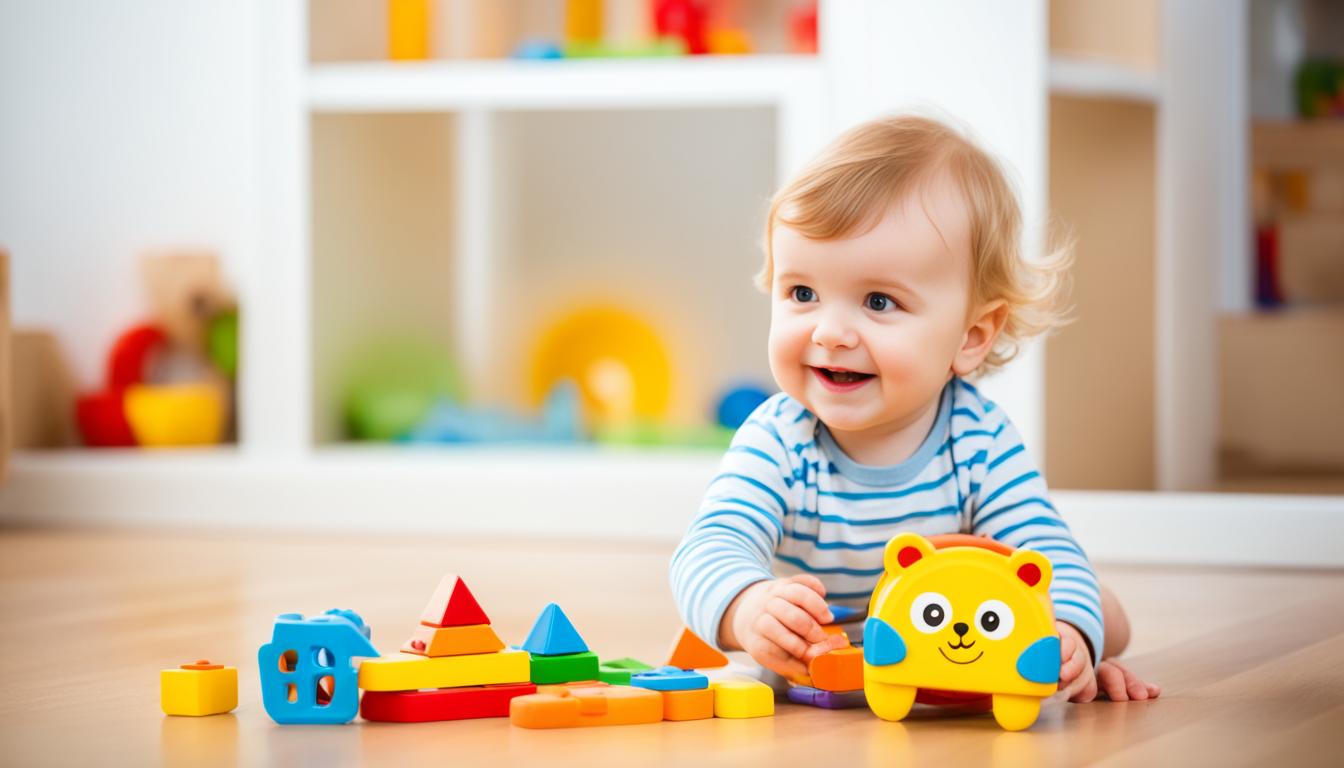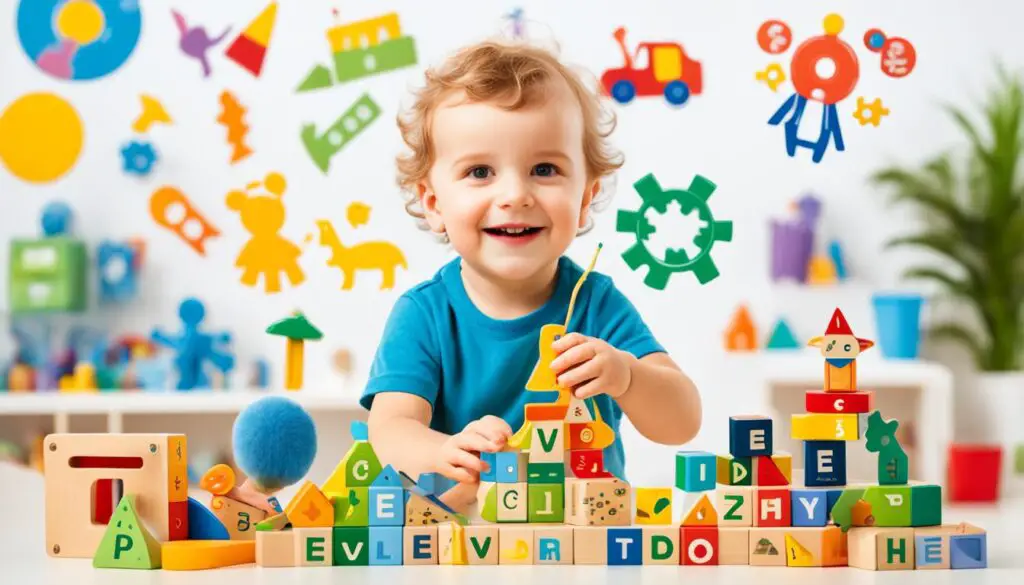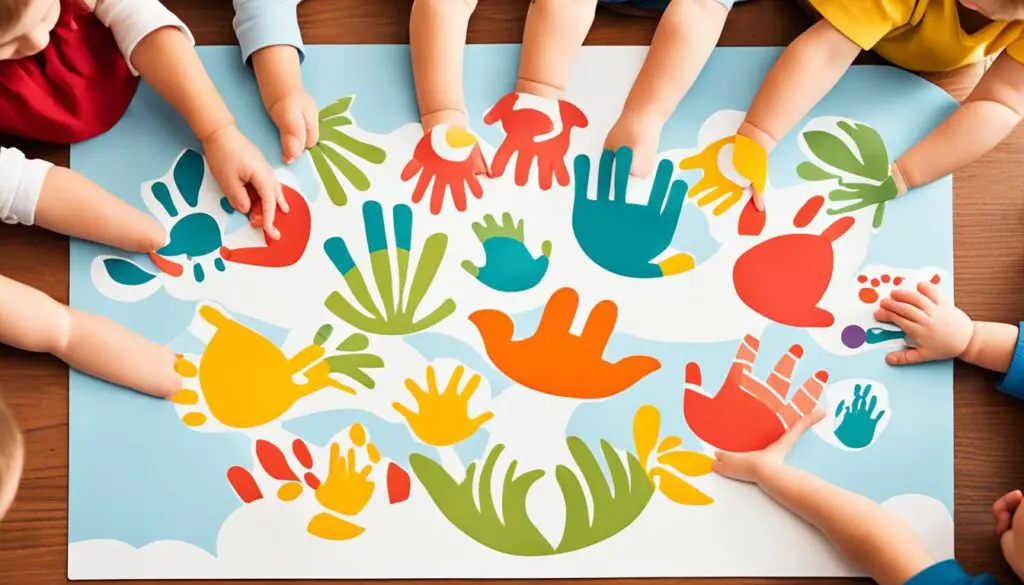
Early Childhood Development and Family Studies: Bridging Theory and Practice
As professionals in the field of early childhood development and family studies, I firmly believe in the power and significance of understanding the critical stages of a child’s growth. By bridging the gap between theory and practice, we can pave the way for a brighter future for children and their families.
Early childhood development is a crucial period that lays the foundation for a child’s physical, social, emotional, and cognitive well-being. It is during these formative years that children go through rapid growth and development, shaping their abilities and shaping their readiness for future learning and success. By studying the intricate interplay between theory and practice, professionals can create an environment that nurtures and supports each child’s unique needs, unlocking their full potential.
Family studies in early childhood also play a vital role in understanding a child’s development. We recognize that families are an essential component of a child’s growth and well-being. By examining family dynamics, parenting styles, and the broader social environment, we gain insights into how these factors shape a child’s development. This knowledge helps us tailor our interventions and support to meet the individual needs of each child and their family.
At the heart of our work is the integration of theory and practice. We utilize established theoretical frameworks, such as attachment theory and ecological systems theory, to inform our interventions and strategies. This evidence-based approach enables us to translate research into meaningful and effective support for children and families. By bridging theory and practice, we can address the multifaceted needs of children and create a foundation for their lifelong well-being and success.
Key Takeaways:
- Early childhood development is a critical period for a child’s overall well-being and success.
- Family dynamics and the social environment significantly impact a child’s development.
- Bridging theory and practice allows professionals to provide evidence-based interventions.
- Integration of theoretical frameworks enhances support for children and families.
- Understanding the unique needs of each child and family is essential for optimal development.
The Importance of Early Childhood Development
Early childhood development is of paramount importance in shaping a child’s future. During these early years, children undergo rapid growth and development, setting the stage for their physical, social, emotional, and cognitive well-being.
The foundation laid during early childhood becomes the bedrock for lifelong learning and success. Research demonstrates that quality early childhood experiences can have a profound impact on various aspects of a child’s life.
Physical Development
During early childhood, children’s physical abilities progress significantly. They learn to crawl, walk, and eventually run, developing their gross motor skills. Fine motor skills, such as writing or manipulating objects, also take shape. Encouraging physical activity and providing a nurturing environment can foster the development of healthy habits and overall physical well-being.
Social and Emotional Development
Early childhood is a critical time for social and emotional growth. Children begin to form relationships with family members, caregivers, and peers. They learn how to navigate emotions, such as empathy, sympathy, and self-regulation. Positive experiences during this period can promote healthy social interaction, emotional intelligence, and the ability to establish meaningful connections later in life.
Cognitive Development
During early childhood, children’s cognitive abilities, such as language acquisition, problem-solving, and memory, develop rapidly. Their curiosity and imagination flourish, laying the groundwork for future academic success. High-quality early childhood education and stimulating environments can enhance cognitive development, promoting a love for learning and intellectual curiosity.
Impact on Future Well-being
The importance of early childhood development extends beyond the early years. Research consistently shows that the quality of early childhood experiences significantly influences a child’s future academic achievement, social competence, and overall well-being.
- Academic Achievement: Children who have a strong early foundation are more likely to perform well academically throughout their lives.
- Social Competence: The ability to interact positively with others, resolve conflicts, and establish healthy relationships is cultivated early on.
- Overall Well-being: Early childhood development contributes to positive mental health, self-esteem, and overall life satisfaction.
Investing in early childhood development is not only beneficial for individual children and families but also for society as a whole. By prioritizing the well-being and growth of our youngest members, we pave the way for a brighter future.

Exploring Family Studies in Early Childhood
Family studies in early childhood provide valuable insights into the impact of family dynamics on a child’s development. Understanding how the family environment, parenting styles, and social interactions shape a child’s growth and well-being is crucial for developing effective interventions and support strategies. By examining family relationships, communication patterns, and cultural influences, professionals in this field can tailor their approaches to meet the specific needs of children and their families.
The Role of Family Dynamics
Family dynamics play a significant role in shaping a child’s development. The relationships between family members, the level of support, and the quality of interactions within the family unit all contribute to a child’s emotional and social well-being. Positive family dynamics characterized by warmth, open communication, and mutual respect create a nurturing environment that promotes healthy development.
Parenting Styles and their Influence
Parenting styles have a profound impact on a child’s development. Researchers have identified four primary parenting styles: authoritative, authoritarian, permissive, and neglectful. Each style has distinct characteristics that shape a child’s behavior, self-esteem, and overall well-being. Professionals in family studies work to understand how different parenting styles influence a child’s development and use this knowledge to provide guidance and support to parents.
Here is a brief overview of the four main parenting styles:
- Authoritative: Characterized by warmth, clear rules, and open communication, authoritative parenting fosters independence, self-discipline, and positive relationships.
- Authoritarian: This parenting style is strict and controlling, with little room for flexibility or negotiation. Children raised in authoritarian households may struggle with autonomy and exhibit obedience without question.
- Permissive: Permissive parenting is lenient and indulgent, with few rules or boundaries. While children may feel loved and supported, they may also struggle with self-control and face challenges in setting boundaries.
- Neglectful: In neglectful parenting, parents are uninvolved and indifferent, often neglecting their child’s basic needs. This parenting style can have serious detrimental effects on a child’s well-being and development.
The Influence of the Social Environment
The social environment in which a child grows up influences their development in significant ways. Factors such as socio-economic status, cultural norms, and community resources all shape a child’s experiences and opportunities. Professionals in family studies recognize the importance of considering the broader social context to understand the unique needs and challenges faced by children and their families.
By exploring family studies in early childhood, professionals gain valuable insights into the intricate dynamics that impact a child’s development. This knowledge allows them to tailor interventions and support strategies that address the specific needs of each family, promoting optimal growth and well-being.

Bridging Theory and Practice in Early Childhood Development and Family Studies
In the field of early childhood development and family studies, bridging theory and practice is essential for effectively supporting the growth and well-being of children and families. By integrating theoretical frameworks, such as attachment theory and ecological systems theory, with practical strategies and interventions, professionals can translate research and evidence-based knowledge into meaningful actions.
Theory serves as a foundation for understanding child development and family dynamics, providing a roadmap for professionals to create targeted interventions. By combining theory with practice, professionals can tailor their approaches to meet the unique needs of each child and family, fostering optimal development.
Practical strategies, guided by theory, enable professionals to address the complex needs of children and families in a holistic manner. This means considering all aspects of a child’s life, from their relationships with caregivers and peers to their physical, emotional, and cognitive development. By integrating theory and practice, professionals can provide comprehensive support that promotes positive outcomes.
FAQ
What is early childhood development?
Early childhood development refers to the physical, social, emotional, and cognitive growth and development that occurs in young children. It focuses on the formative years of a child’s life and is crucial for their future well-being and success.
Why is early childhood development important?
Early childhood development is important because it sets the foundation for a child’s lifelong learning and success. Quality early experiences have a significant impact on a child’s academic achievement, social competence, and overall well-being.
What is the role of family studies in early childhood?
Family studies in early childhood focus on understanding how the family environment influences a child’s development. This includes examining family dynamics, parenting styles, communication patterns, and cultural influences, all of which play a crucial role in shaping a child’s growth and well-being.
How do professionals bridge theory and practice in early childhood development and family studies?
Professionals in this field bridge theory and practice by combining theoretical frameworks, such as attachment theory and ecological systems theory, with practical strategies and interventions. This allows them to translate research and evidence-based knowledge into effective support and interventions tailored to the specific needs of children and their families.